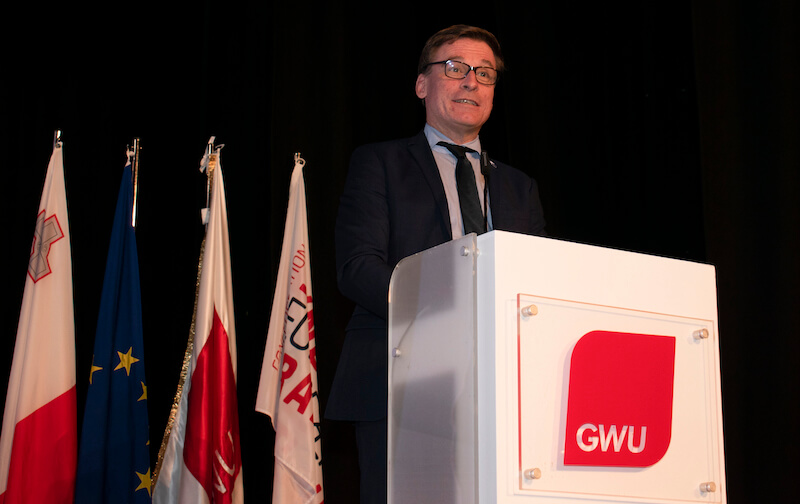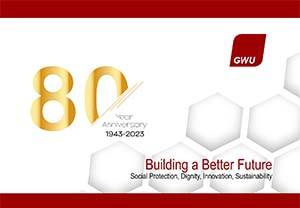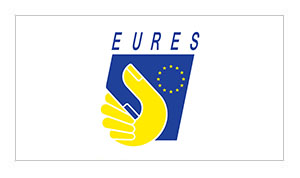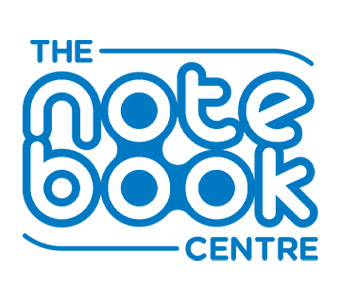The President of the European Economic and Social Committee, Oliver Roepke
Speaking at the international conference marking the 80th anniversary of GWU, the
President of the European Economic and Social Committee, Oliver Roepke, said that
GWU was a success not only for Malta but also for Europe. Because Europe needs
strong trade unions and GWU is one of them.
Oliver Ropke began his speech by saying that Malta had played an important role in
his personal life and that he was therefore looking forward to visiting our country
again. He also recalled that Malta was the first country he visited immediately after
being elected President of the Workers’ Group in the European Economic and Social
Committee in 2019.
He said that the eightieth anniversary of the GWU coincides almost exactly with the
75th anniversary of the Universal Declaration of Human Rights. This coincides with
the 75th anniversary of the Universal Declaration of Human Rights. A declaration
that for the first time laid down the basic civil, political, economic and cultural rights
for everyone.
In this context, he mentioned that these rights should be a source of inspiration for
each and every one of them to defend and advance the same rights.
It is therefore a fundamental right to join a workers’ organisation such as the GWU, a
right that the European Economic and Social Committee (EESC) must continue to
defend and protect.
Referring to the GWU, the EESC President said that it had been working to protect
workers and defend their interests since it was founded in 1943, and that workers’
living conditions and quality of life would be safeguarded through close cooperation
with the government and with bodies such as the EESC at European level.
He further stressed that the geopolitical, economic and social crisis we are facing
today and the lack of trust in democratic institutions force us to work even harder to
protect the common European principles that are the foundation of trade unions and
on which social partnership is based.
He also pointed to the importance of collective bargaining and said that work must
continue so that the goal of 80% coverage of collective bargaining across Europe is
achieved as soon as possible. In this context, he praised the work of GWU to
strengthen and expand collective bargaining.
He also spoke about the important function of civil society as a guardian of
democracy and said that national institutions should raise standards and give civil
society more space for freedom of expression and non-discrimination.
Towards the end of his speech, Oliver Robke also addressed the digital
transformation and workers’ rights, saying that this is another major challenge for
Europe, as is the fight against climate change, the shift towards a green economy
and digitalisation.
He said that the European social model remains a crucial element that needs to be
adapted to meet modern challenges, including the digital core, which requires new
skills and provisions, as well as good working conditions to compensate for labour
shortages, with a focus on the quality of jobs for women and young people and
businesses.











